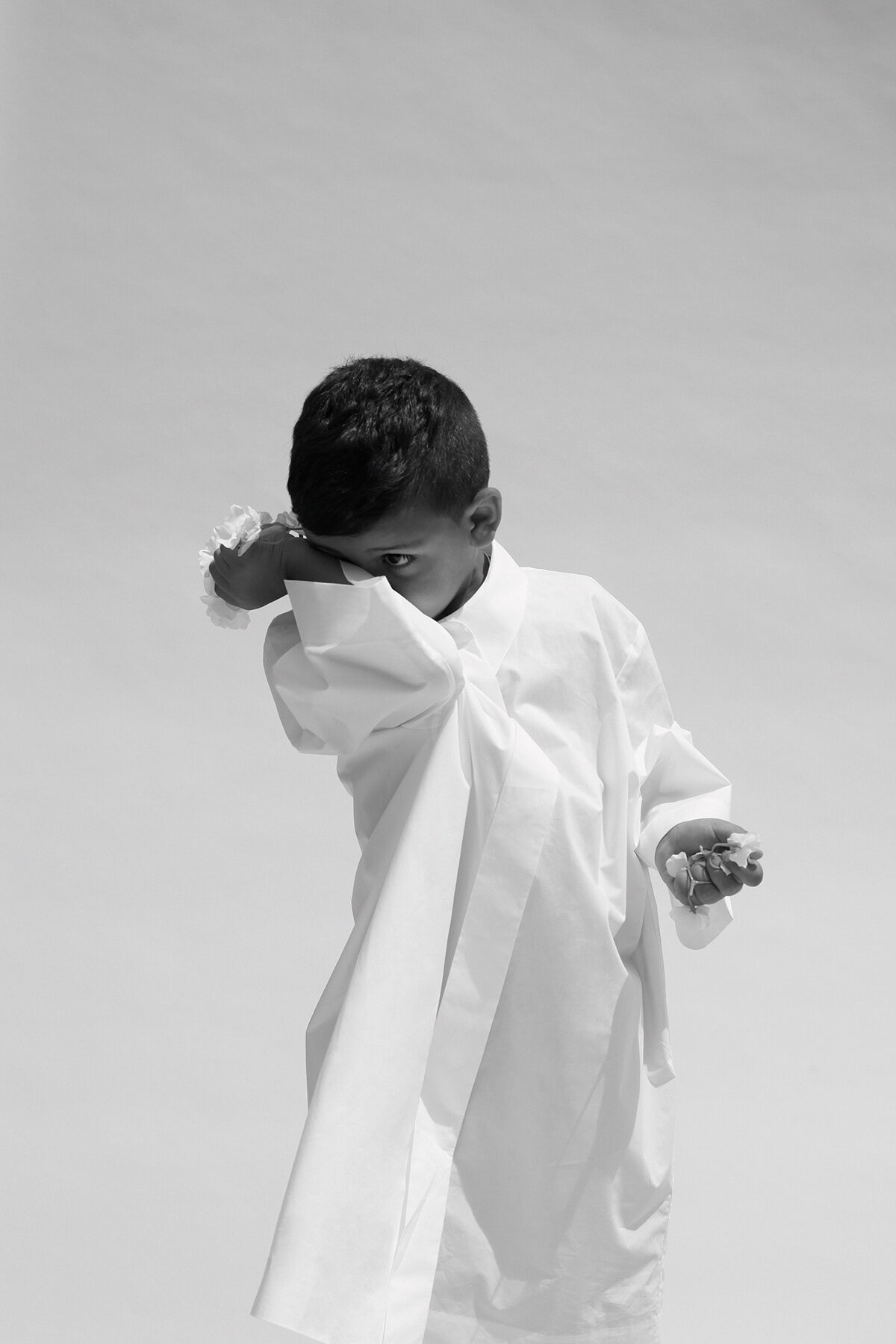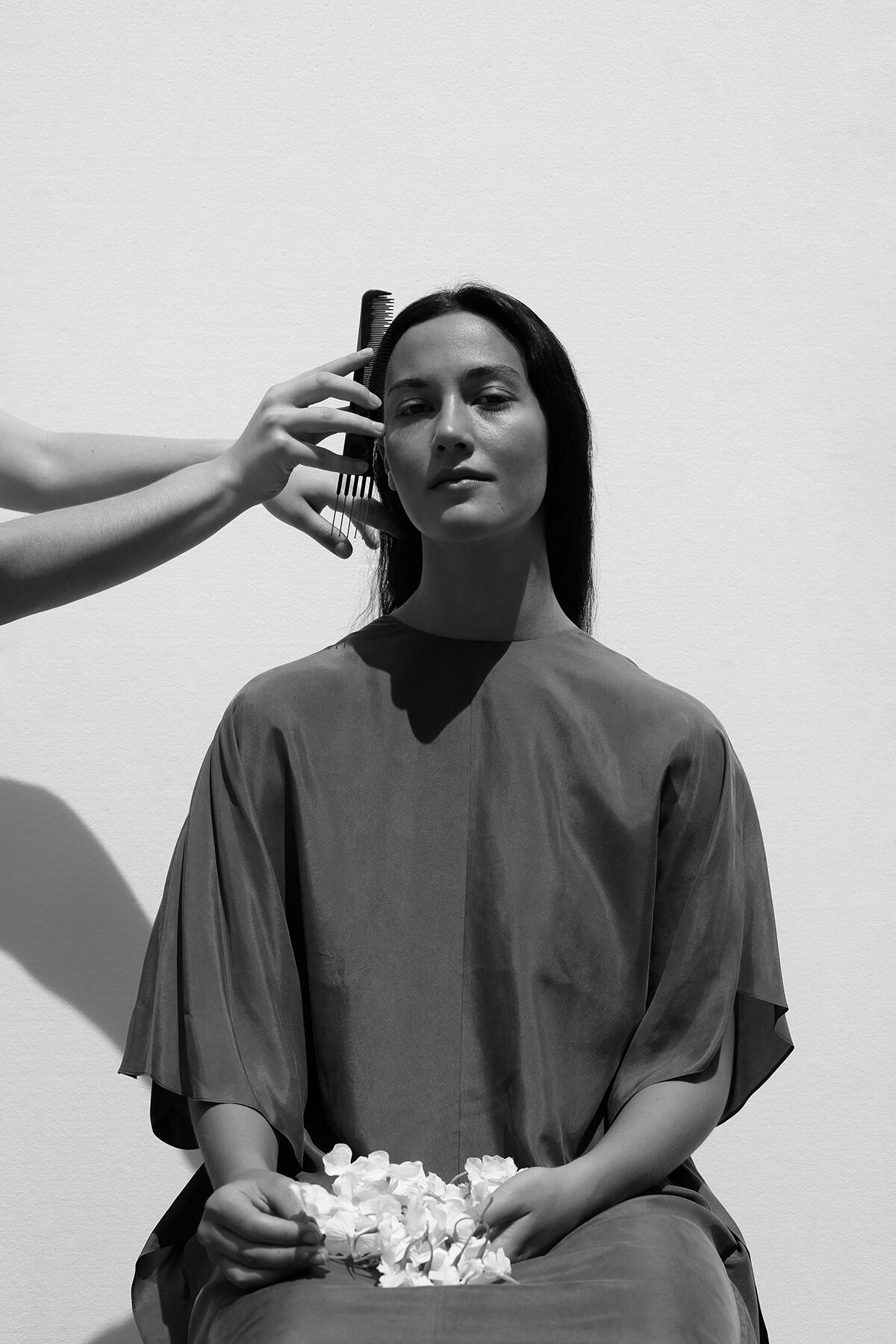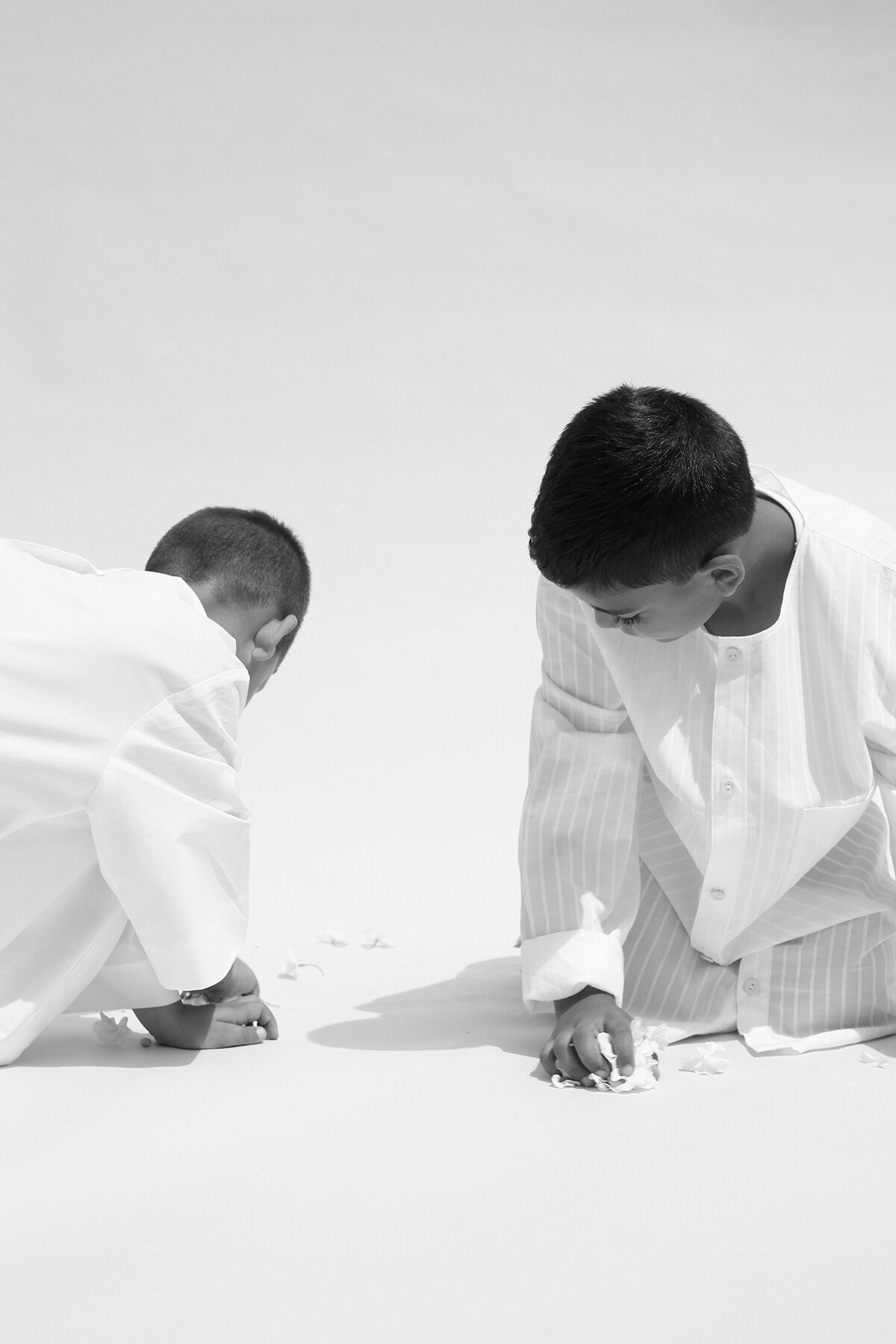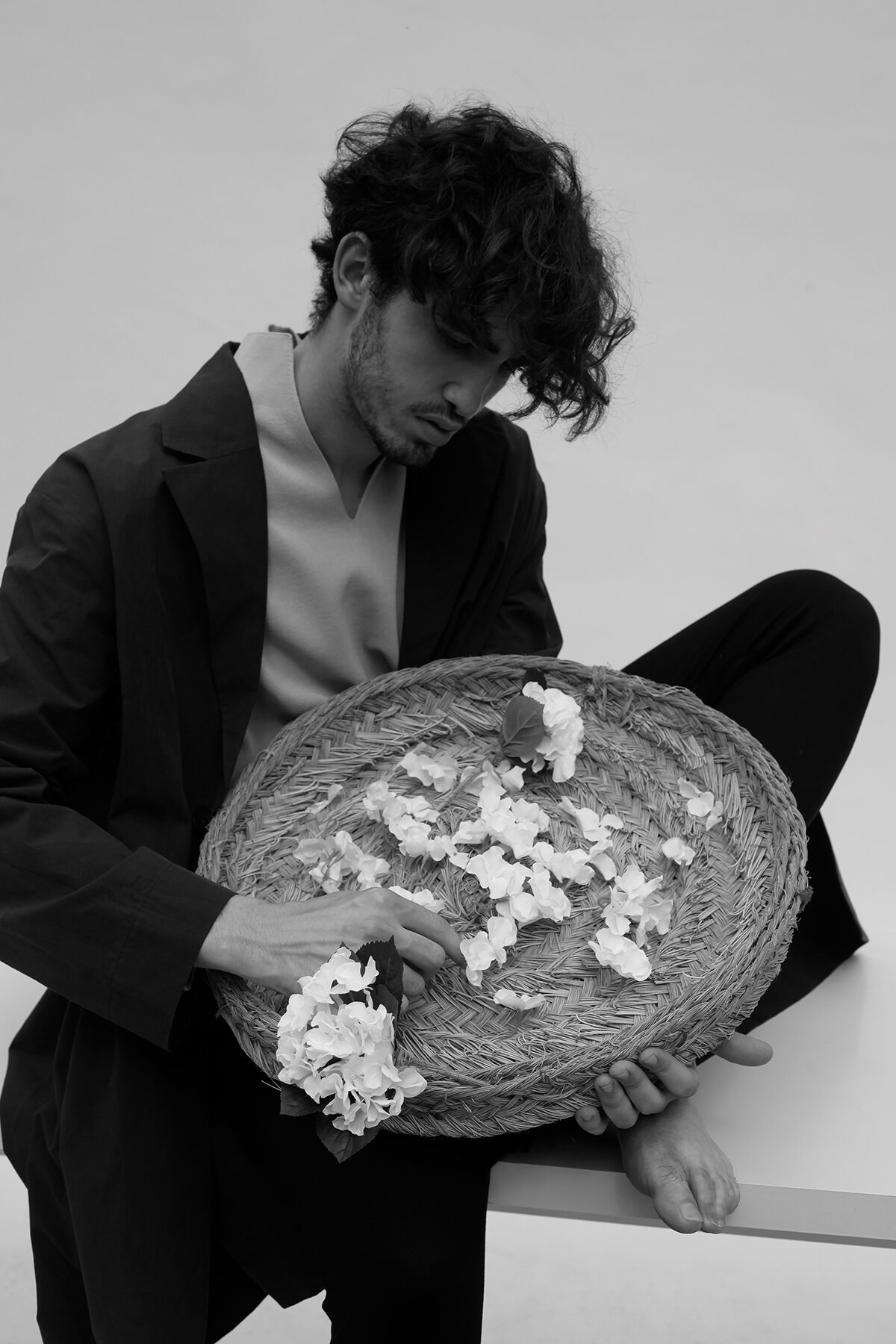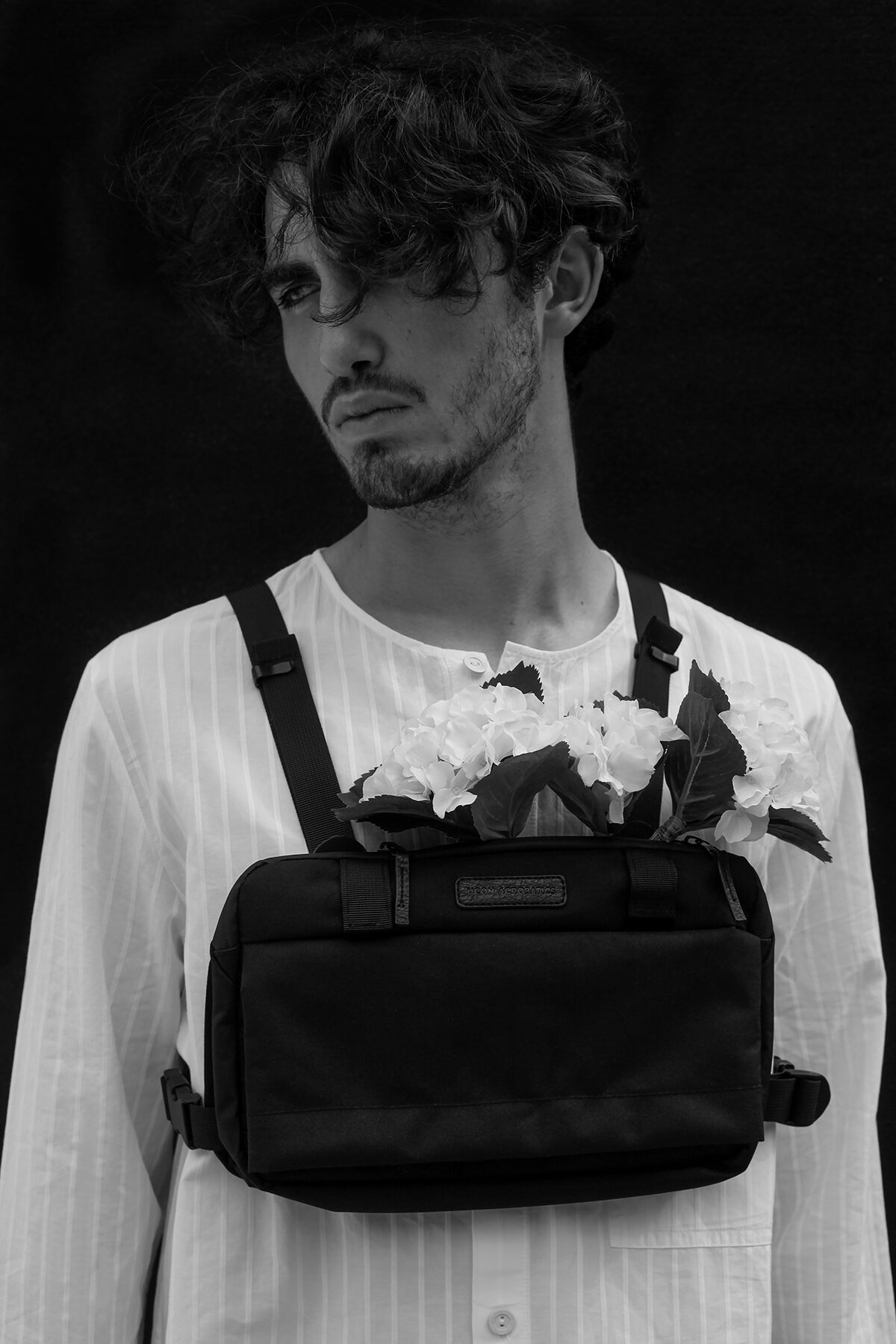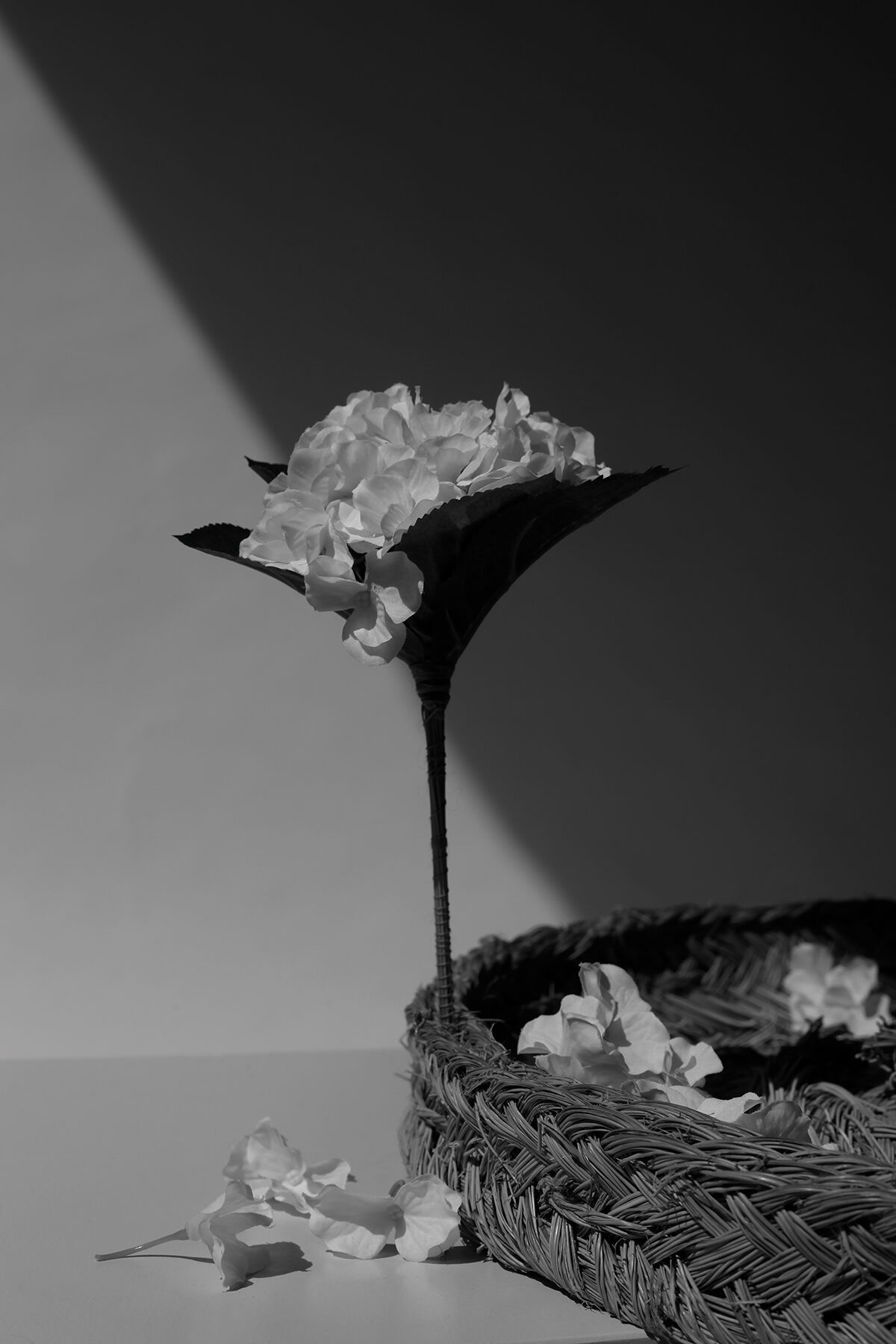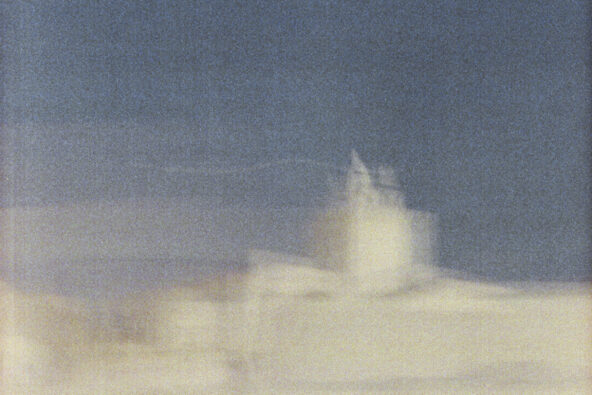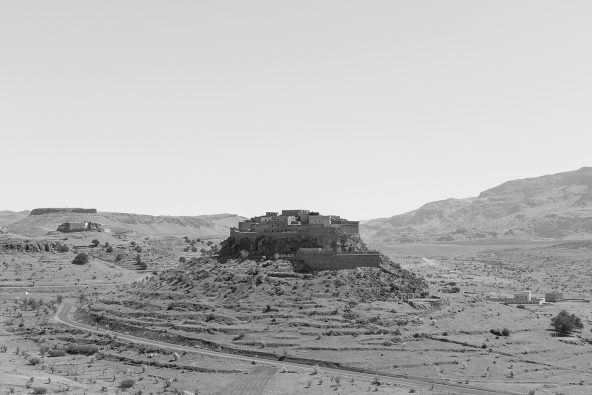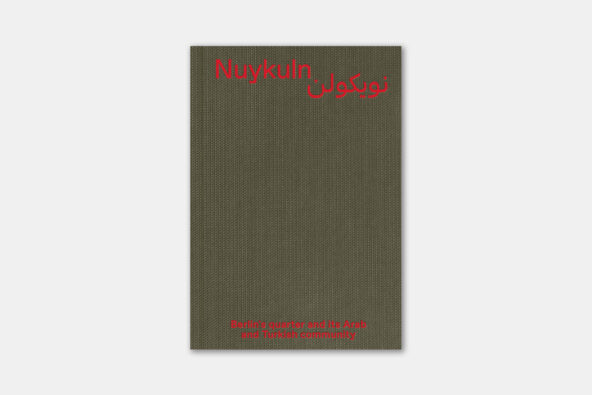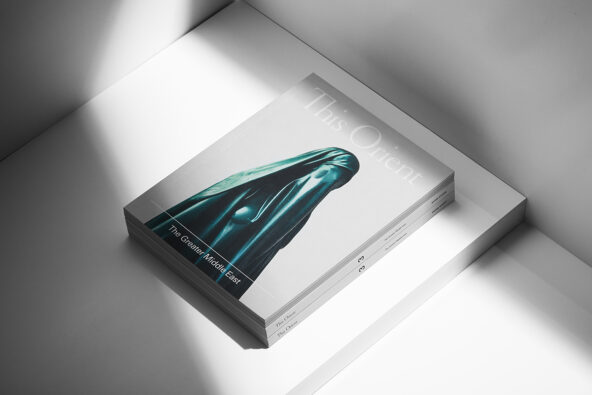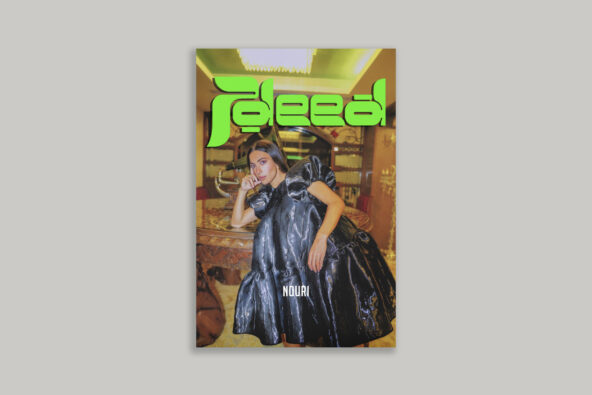Machmoum
‘Under the jasmine in the evening, the wind and flowers surround me, the branches lean over me and wipe away my tears. Under the jasmine I sat down, I tuned the lute and sang’. Hédi Jouini has seduced a whole generation of Tunisians, and many more, with his joyful melodies, and with the simple yet magnificent lyrics of his songs. ‘Taht el Yasmina fellil’ (English: ‘Under the jasmine in the evening’) is his most famous song. This flower is inseparable from the summer holidays of my childhood. Every year I looked forward to the hot summer days of Tunis, and from an early age, jasmine played a significant role in this. Among the Tunisian diaspora, one often hears the term ‘rihet lebled’, meaning, ‘the scent of home’. This means nothing else than the scent of jasmine. As children living abroad, our relatives in Tunisia always spoilt my brother and me, so we never needed to wait long for the next fresh jasmine necklace or ‘Machmoum’. On an evening walk with my uncle, he would tear off a few jasmine blossoms while passing by and rub them between his hands. I did the same thing, and still do today.
There are many stories about the origin of this tradition. In the south of Spain, in Malaga, you will see men in traditional clothing who sell bouquets that look quite similar to the Tunisian version, but that are called ‘Biznaga’. This word, according to historians, means ‘gift of God’ in Arabic, and the tradition of selling these jasmine bouquets very likely comes from Andalusia. But what does jasmine have to do with politics? Some of you may be familiar with the term ‘Jasmine Revolution’, and several recent popular insurrections have indeed taken on the names of flowers. However, this term is not popular among the Tunisian people, who prefer to call this event the ‘Tunisian Revolution’. To many Tunisians, jasmine is a potent symbol of sweetness and purity, an inappropriate contrast with the deaths, arrests, and looting that the country experienced during the revolution.
Bags by UCON Acrobatics
Clothes by COS
Models:
Emilia Nesterenko
Marouane Mahmoudi
Yassin Ouahi, Adam-Mohamed Ouahi
Styling, Hair & Makeup
Azreta Alija, Styling
Pendo Osmani, Hair & Makeup
Find the whole article inside Vol.3 of This Orient “The Greater Middle East”. Find the issue here in our store.
